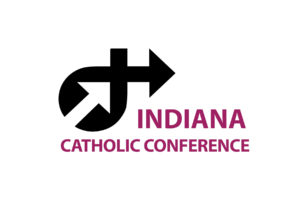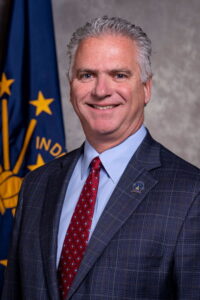By Victoria Arthur
Statehouse Correspondent for Indiana’s Catholic Newspapers
 Members of a growing grassroots movement in Indiana for addressing climate change say they are heartened by progress this year at the Statehouse in cultivating support for their cause.
Members of a growing grassroots movement in Indiana for addressing climate change say they are heartened by progress this year at the Statehouse in cultivating support for their cause.
For the second year in a row, advocates – including the Indiana Catholic Conference – backed legislation to create a climate-solutions task force to study issues related to sustainable- and clean-energy solutions. The task force, which would include legislators and environmental experts, ultimately would have been charged with delivering a report and recommendations to the General Assembly and the governor no later than November 2024.
While last year’s proposed legislation never received a hearing, this year’s version – Senate Bill 335 – did get a hearing, but no vote. Nonetheless, advocates and lawmakers alike are hopeful that the groundwork laid in the past couple of years will lead to success in the future.
“This is a good foundation for future policy,” said Alexander Mingus, associate director of the ICC, the public policy voice of the Catholic Church in Indiana. “The conversation that we had during the committee meeting was hopeful, and the ICC believes that establishing a task force is a very reasonable step – a prudent step – to studying some of the issues around environmental resiliency and climate change in Indiana.”
Mingus acknowledged the difficulties and “ideological battles” surrounding many environmental issues – especially climate change. But he and other supporters of Senate Bill 335 emphasized that the legislation would merely establish a framework for future policy discussions.
“The task force proposed by this bill does not rush into any one policy idea, but rather sets the stage for understanding which policies might be most effective for addressing a changing climate in Indiana,” he said.
Preservation of state forests, funding for energy-efficient buildings and support for workers affected by a changing energy industry would be among the issues addressed by the task force.

Senate Bill 335 was carried forward in the Senate by a cross-section of lawmakers representing both political parties and diverse backgrounds, including Sen. Eric Bassler (R-Washington), who said that his Catholic faith informs his thinking about these issues.
“One thing that God calls us to do and obviously the Church calls us to do is to care for and be a good steward of God’s creation,” said Bassler, a member of Our Lady of Hope Parish in Washington, who was among several co-authors of the legislation. “I think that establishing this task force is a way to do that.”
While expressing dismay that the bill did not come up for a vote, Bassler pointed to the circuitous path that lawmaking efforts often take.
“When it comes to the legislative process, sometimes in year one when a bill is written and submitted, it doesn’t even get a hearing,” he said. “And maybe in year two or three it gets a hearing but not a vote. And maybe in year three or four it gets a hearing and a vote. We can’t make anything happen on the Senate side this year, but maybe we can do this again and get a vote next year.
“My instinct is that if this were to get a vote in a committee and then on the Senate floor, I think it would pass,” Bassler continued. “Sometimes when we talk about environmental or climate-type issues, it can be polarizing. So maybe it takes a while for people to get used to the idea. I’m cautiously optimistic that we can see something happen next session.”
Meanwhile, environmental advocates are hailing success on another measure. House Bill 1138, which would require childcare and pre-kindergarten facilities to test drinking water for lead contamination, unanimously passed the House Feb. 22 on its third reading.
Authored by Rep. Carolyn Jackson (D-Hammond), the bill now moves to the Senate for consideration at the midpoint of the legislative session, known as crossover.
The ICC and other allies will follow the progress of that bill while looking at ways to help ensure that the climate-solutions task force becomes reality one day. Benedictine Sister Sheila Marie Fitzpatrick, one of the founding members of the Creation Care Commission of the Archdiocese of Indianapolis, was among those who provided written testimony for the hearing on Senate Bill 335.
“Awareness is growing,” said Sister Sheila, a member of Our Lady of Grace Monastery in Beech Grove, Indiana. “We definitely made progress from last year to this year, and my hope is that it will continue to strengthen and grow.”
To follow priority legislation of the ICC, visit www.indianacc.org. This website includes access to I-CAN, the Indiana Catholic Action Network, which offers the Church’s position on key issues. Those who sign up for I-CAN receive alerts on legislation moving forward and ways to contact their elected representatives.
